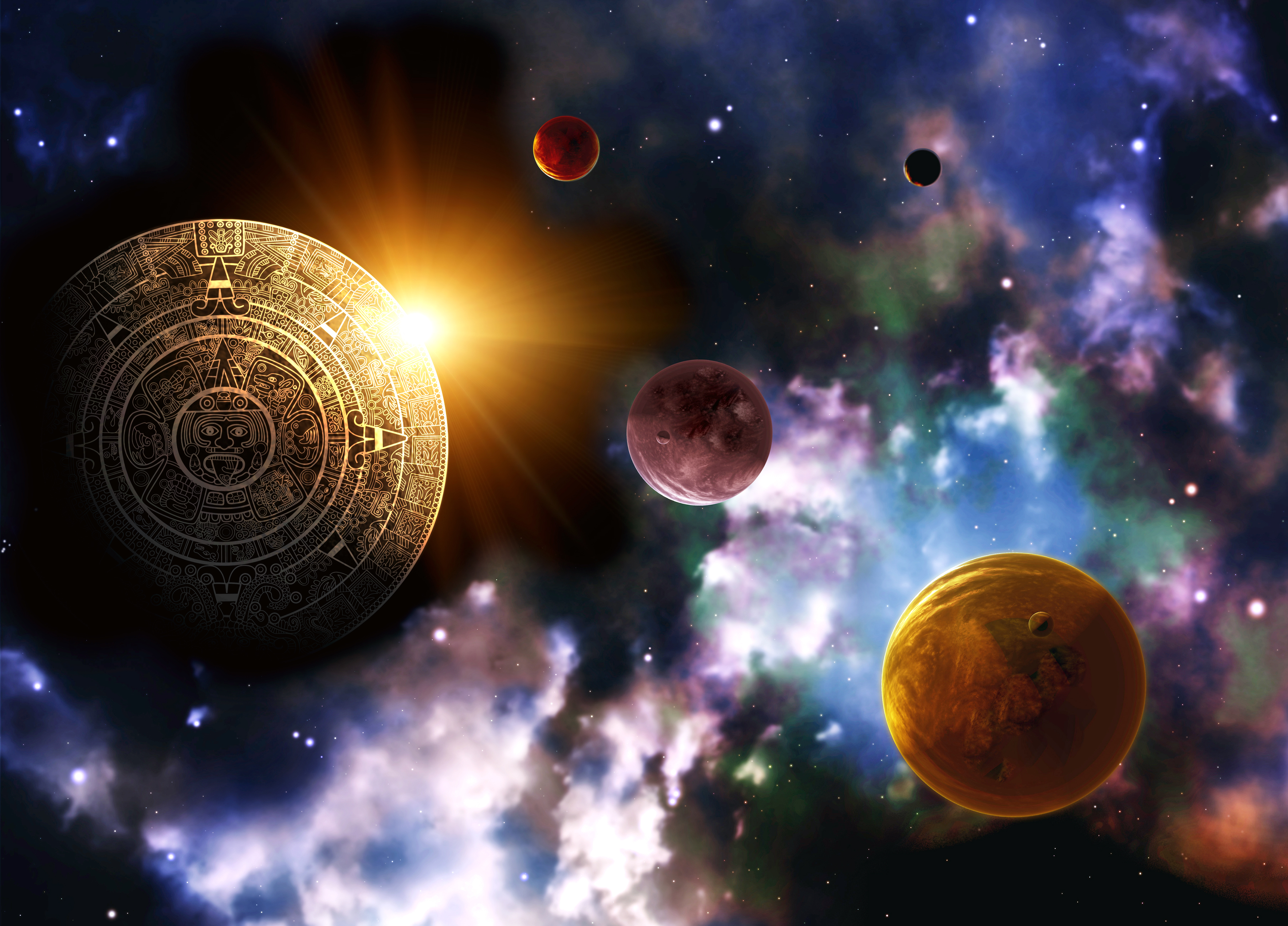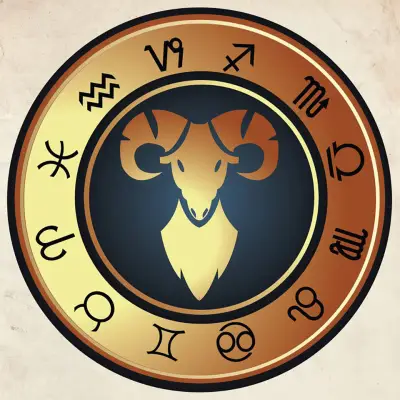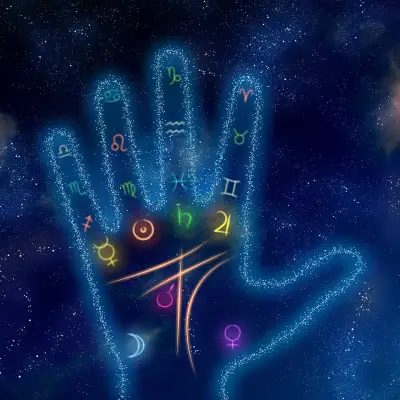Have you ever gazed at the night sky and wondered how the stars and planets above could influence life here on Earth? Vedic Astrology, an ancient Indian science, offers a fascinating window into this cosmic dance.
Steeped in tradition, Vedic Astrology is a tool for understanding yourself and your place in the world. Read on to learn more about this intricate system and how it can offer guidance in your life.
Jump to:
What is Vedic Astrology?
Originating in ancient India, Vedic Astrology, also known as Hindu or Indian Astrology, is a millennia-old system based on the Vedas, the spiritual texts of Hinduism. Unlike Western astrology, which focuses mainly on sun signs, Vedic Astrology considers the entire celestial map at your time of birth, offering a more detailed and personalised view of your life.
Understanding the Indian Zodiac and Planets

The Indian Zodiac, a cornerstone of Vedic Astrology, consists of twelve signs, each representing a segment of the celestial sphere. Unlike Western astrology, which uses the tropical zodiac based on the seasons, Vedic Astrology employs the sidereal zodiac.
This system factors in the precession of the Earth's axis, a slow, wobble-like motion that slightly shifts our perspective of the stars over time. This adjustment often results in differences in zodiac signs when compared between Vedic and Western systems. For instance, you might be an Aries in Western astrology but a Pisces in Vedic Astrology.
The Planets: Cosmic Representatives of Life Aspects
In Vedic Astrology, planets – known as 'Grahas' – are considered significant cosmic influencers of human life. Each planet, from the Sun to Ketu, holds specific symbolism and governs various aspects of our existence.
- Sun (Surya): The Sun, a majestic and vital planet in astrology, symbolises the soul, willpower, vitality, and the essence of self. It's a representation of authority and power in life.
- Moon (Chandra): The Moon, with its soothing and nurturing glow, represents the mind, emotions, motherhood, and personal needs. It influences emotional resilience and intuition.
- Mars (Mangal): Mars, the red planet, is the epitome of energy, courage, action, and desire. It governs drive, determination, and your capacity to assert yourself.
- Mercury (Budha): Mercury, known for its swift movement, symbolises communication, intelligence, logic, and versatility. It influences how you think, learn, and express yourself.
- Jupiter (Guru): Jupiter, the largest planet, represents wisdom, growth, prosperity, and good fortune. It influences your sense of optimism, expansion, and moral and spiritual inclinations.
- Venus (Shukra): Venus, the symbol of beauty and love, governs pleasure, romance, art, and harmony. It influences relationships, aesthetic sense, and material comforts.
- Saturn (Shani): Saturn, often feared for its strict nature, represents discipline, responsibility, and structure. It teaches you about limits, endurance, and the consequences of your actions.
- Rahu: Rahu, the North Node of the Moon, is a shadow planet. It represents materialism, desire, and worldly ambitions. Rahu can bring about transformation through unconventional means.
- Ketu: Ketu, the South Node of the Moon, contrasts Rahu. It signifies spiritual inclination, liberation, and introspection. Ketu often points to past life karma and spiritual growth.
Each planet's placement in your Vedic birth chart shapes your life experiences, personality, and the lessons you encounter. Their positions in different houses and signs, and their interactions with each other, paint a unique portrait of your life story.
The Zodiac Signs and Their Planetary Rulers
In Vedic Astrology, each zodiac sign is associated with a planet known as its ruler. This planetary ruler further defines the sign's characteristics and influence on those born under it. For example, Mars rules Aries, infusing the sign with its dynamic and assertive energy.
The Vedic Chart

The Vedic birth chart, or 'Jataka', is a map of the sky at the moment of your birth. This remarkable astrological tool, deeply rooted in the ancient wisdom of Vedic traditions, offers an intricate and detailed map of the sky as it appeared at the exact moment of your birth. Let's explore this cosmic snapshot and understand how it weaves the story of your life.
Crafting Your Personal Cosmic Map
When an astrologer creates your Vedic birth chart, they meticulously plot the positions of planets and stars against the backdrop of the twelve zodiac signs and the twelve houses. This chart is divided into twelve segments, each representing different areas of your life, such as career, relationships, health, and spiritual journey.
The positions of the planets in these houses and their relationships with each other make your chart uniquely yours. These placements are not random; they're believed to carry the cosmic imprint of your past karmas and outline the potential trajectory of your current life.
Decoding the Language of the Stars
In Vedic Astrology, every planet and sign in your chart has a story to tell. For instance, the Sun might shine in your career house, suggesting a strong presence in your professional life, while Venus in your relationship house could indicate a harmonious love life.
The chart also shows the 'Ascendant' or 'Lagna' – the sign that was rising on the eastern horizon at your birth time. This sign holds importance as it sets the tone for your personality and life path.
The Houses: A Guide to Your Life's Journey
Each house in the Vedic chart represents a different aspect of your life. The first house, for instance, is about self-identity, while the seventh house reflects marriage and partnerships. The placement of planets in these houses indicates the areas of life that will be most prominent and active.
The Planetary Periods: Timing Your Life's Events
A unique feature of Vedic Astrology is the 'Dasha' system, a method used to predict certain periods and events in your life. Your chart indicates which planetary period you are born into, which can influence your life's path. Each planet governs a certain period during which its influence is particularly strong.
The Role of Karma in Your Chart
Vedic Astrology deeply intertwines with the concept of karma. Your birth chart is often seen as a reflection of the karmas you're meant to experience or resolve in this life. The positions of the planets and their aspects indicate your past deeds, influencing your current life circumstances and future potential.
A Dynamic and Evolving Guide
Your Vedic birth chart is a dynamic guide that evolves with you. Transits, which are the current movements of planets, interact with your natal chart, bringing new challenges, opportunities, and insights. Understanding these transits in relation to your birth chart can help you navigate life more effectively.
A Tool for Self-Improvement and Growth
Perhaps the most empowering aspect of the Vedic chart is its role in personal growth. By understanding the strengths and challenges indicated in your chart, you can work towards balancing your karmas, making conscious choices, and steering your life towards a more fulfilling path.
How Vedic Astrology Predictions Work

Vedic astrology predictions are based on the intricate analysis of your birth chart. Astrologers look at the positions of planets, their movements, and their interactions with zodiac signs to forecast events and phases in your life. Here's a breakdown of how this fascinating process works:
- Birth Chart Analysis: The cornerstone of Vedic astrology predictions is your birth chart, a detailed map of the heavens at the moment of your birth. The exact locations of the planets in your chart reveal specific life themes and potential events. Each planet is in a zodiac sign, which colours its expression in your life. For instance, Mars in Aries is assertive, while Mars in Libra focuses on partnership.
- Planetary Movements and Transits: Astrologers examine the current positions of planets and how they interact with your birth chart. These transits can activate various aspects of your life, such as career advancements, relationship changes, or personal growth opportunities.
- Planetary Aspects: How planets view or aspect each other in your chart can influence the prediction. Positive aspects can signal growth and harmony, while challenging aspects might indicate areas of life that require attention and work.
- Dasha System (Planetary Periods): This system helps determine when certain influences will be most prominent in your life. Each person experiences different planetary periods ('Dasha') at different times, influencing life events in unique ways.
- Houses in the Birth Chart: Each of the twelve houses governs different areas of your life, like career, relationships, health, etc. Planets residing in or transiting through these houses trigger specific events related to that house.
- Strength of Planets: Some planets may naturally bring more positive or challenging influences based on their nature and position in your chart. Planets in certain signs are stronger (exalted) or weaker (debilitated), influencing the strength of the prediction.
- Yogas and Doshas: Certain planetary alignments, known as Yogas, can indicate specific life events or fortunes. Unfavourable alignments might indicate challenges or obstacles, and remedies can be suggested for these.
- Cultural and Spiritual Context: Predictions often take into account the concept of karma, suggesting that life events are tied to past actions. Insights can also focus on spiritual growth and life lessons, not just material outcomes.
Vedic vs Western Astrology: Key Differences
The primary distinction between Vedic and Western astrology lies in the zodiac used: Vedic Astrology uses the sidereal zodiac, which considers the Earth's axial precession. In contrast, Western astrology uses the tropical zodiac based on the seasons. The table below explains the differences in more detail:
| Aspect | Vedic Astrology | Western Astrology |
| Zodiac System | Uses the sidereal zodiac, aligned with fixed star constellations and accounting for Earth's axial precession. | Employs the tropical zodiac, based on Earth's position relative to the Sun and aligned with the seasons. |
| Planetary Considerations | Includes additional 'shadow planets' like Rahu and Ketu (lunar nodes), essential for predictions. | Focuses mainly on the Sun, Moon, and visible planets, excluding Rahu and Ketu. |
| Zodiac Signs | Potential discrepancy of about 23 degrees due to precession; often results in a different sun sign. | Sun signs are more fixed, aligned with the Gregorian calendar, leading to consistent assignment of sun signs. |
| Astrological Charts | Chart is square and strongly emphasises lunar mansions or 'Nakshatras'. | Chart is circular, focusing on the solar system's planets and their aspects to each other. |
| Dasha System | Employs a unique 'Dasha' system to predict periods of significant life events based on the moon's position. | No equivalent of the Dasha system; relies on transits, progressions, and solar return charts for timing events. |
| Predictive Techniques | Deeply intertwined with karma, focusing on past, present, and future life cycles. | More focused on psychological aspects, personality traits, and potential future trends. |
Is Vedic Astrology More Accurate?
Many find Vedic Astrology to be remarkably accurate. Its precision stems from its detailed methods and the consideration of more variables than Western astrology. However, the accuracy of any astrological system also depends on the skill of the astrologer and your belief in the practice.
Recommended for you!
Best SellersDiscover the Secrets of the Stars with Our Vedic Astrology Diploma Course
Are you intrigued by the alignment of the stars and planets and how they influence our lives? Delve into the ancient wisdom of Vedic Astrology with our comprehensive Vedic Astrology Diploma Course, your guide to understanding the cosmic forces that shape our existence.
What You'll Explore
- Mysteries of the Zodiac: Dive deep into the sidereal zodiac system of Vedic Astrology and discover how it differs from its Western counterpart.
- Interpreting the Vedic Chart: Learn to read and interpret Vedic birth charts, understanding their insights into personality traits, life events, and destinies.
- Planetary Influences and Predictions: Uncover the significance of each planet in the Vedic system and how their positions influence various aspects of life.
- Practical Applications: Gain practical skills in making astrological predictions, using the unique Dasha system for timing life events, and applying these insights in everyday life.
Special Offer for Your Astrological Journey
We’re excited to present our Vedic Astrology Diploma Course at an exclusive rate of only £29, saving you over £100!













